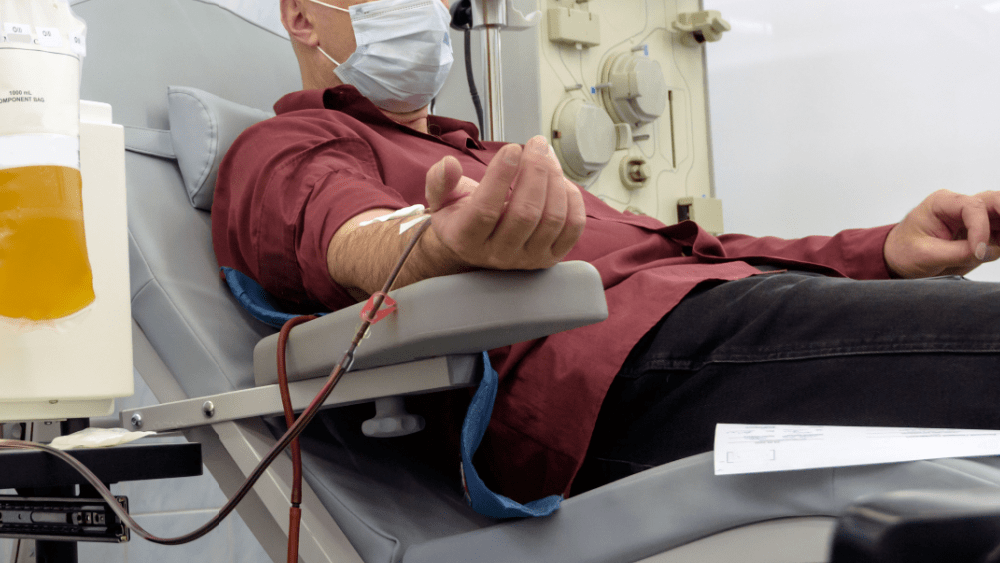The Food and Drug Administration eased restrictions specifically for gay and bisexual men to donate blood. The agency said in a news release that blood donor eligibility will now be determined using a set of “individual, risk-based questions to reduce the risk of transfusion-transmitted HIV.”
The recommendations ask that all donors answer individual risk assessment questions to screen for possible HIV exposure. Previously, guidelines required a three-month abstinence period for donations from men who have sex with men; now, that blanket rule is being eliminated. Peter Marks, M.D., PhD., director of the FDA’s Center for Biologics Evaluation and Research, said in a news release announcing the finalization of the recommendations: “The FDA has worked diligently to evaluate our policies and ensure we had the scientific evidence to support individual risk assessment for donor eligibility while maintaining appropriate safeguards to protect recipients of blood products. The implementation of these recommendations will represent a significant milestone for the agency and the LGBTQI+ community.”
The restrictions in place were opposed by gay rights groups and medical societies including the American Medical Association. The FDA said that the goal of the new guidelines is to expand the number of people eligible to donate blood while still “maintaining the appropriate safeguards” to keep the supply of donor blood safe, adding that the new policy is based on “the best available scientific evidence,” and mirrors policies in the United Kingdom and Canada. The news release said: “The FDA is committed to working closely with the blood collection industry to help ensure timely implementation of the new recommendations and we will continue to monitor the safety of the blood supply once this individual risk-based approach is in place.”
Editorial credit: Vital Hil/ Shutterstock.com





